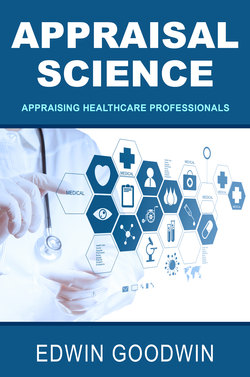Читать книгу Appraisal Science: Appraising Healthcare Professionals - Edwin Goodwin - Страница 4
На сайте Литреса книга снята с продажи.
ОглавлениеForeword
“How much responsibility are you willing to take before it’s given to you”
- Seth Godin
I first met the author (Edwin Goodwin) in February 2014 in South London, and then a friendship and mutual respect for our individual knowledge and skills developed. Since then I have watched him grow as a motivational speaker, a writer, and a commentator on current affairs.
In this comprehensive essay, Edwin combines his passion for his vocation as a healthcare scientist with his writing and research skills to produce a thought-provoking piece on the appraisal of healthcare professionals.
As a practising pharmacist, I understand what it means to be a frontline worker in the National Health Service (NHS) in England. On a daily basis, we have to make decisions that if gotten wrong could result in far-reaching consequences for the patients in our care. And so, the training and support we get from our professional bodies go a long way towards giving us the skills and confidence we need to do our work safely and without the fear of making mistakes. Sadly, mistakes do occur and it is the same professional bodies who then have the sometimes-unpleasant duty to discipline their members.
Eleanor Roosevelt said that we should: “Learn from the mistakes of others. You can’t live long enough to make them all yourself.” Indeed, one of the reasons that humans evolved to be storytellers was to share with each other the cautionary tales of things gone wrong, so we may learn from them.
I am currently a volunteer leader in a not-for-profit organisation called Toastmasters International and we have a set of values around integrity, respect, service and excellence. When I’m speaking to people who have taken on new leadership roles in the organisation, I tend to share the story of another organisation who had a very similar set of values. The other organisation was Enron, who as we know now, might have said that they had values such as integrity and respect, but they certainly didn’t bring them to life or expect each other to live by them. We should seek out and share the stories that will show us the problems to avoid and prevent.
Edwin has experienced first-hand what it means to be the subject of a professional regulator's investigation - an adversarial disciplinary process which Edwin strongly contested and which dragged on for six years. He is thus suitably positioned to share his experience and the experience of many others.
I particularly like the humour in several parts of this essay and the interesting insight into the various reasons why healthcare professionals fail to attend a professional discipline hearing.
I read with great interest the case made for the Destigmatisation of Errors which is worth reading indeed.
In the Pharmacy profession in Great Britain, there seems to be a long-drawn-out battle between the representatives of the profession and the law-makers on the need to decriminalise dispensing errors. The fact that a dispensing error could give you a criminal record invariably means that there is an under-reporting of errors. Consequently, the profession is robbed of lessons that could be learnt from many people’s mistakes. Consider this statement by author Bob Gass: “The only mistake – is not to risk making a mistake.”
This essay is however not about pharmacy and pharmacists but about all healthcare professionals. It is a thoroughly researched thesis that contains not a mere rhetorical discussion, but a dynamic, head-on confrontation with the issues.
Edwin demonstrates his ability to construct properly reasoned arguments and identify fallacies and bad practice. He applies measured discretion and his way with words to present a complex and technical argument in a manner that makes sense to a non-technical audience.
In presenting his final thoughts on the way forward, he courageously proposes an alternative to the prevailing practice wherein an unsuspecting professional is closely watched, and mistakes deliberately recorded and pointedly used at a later stage in the context of a disciplinary hearing. The unfortunate professional then faces the real prospect of losing his or her professional standing or of being struck off the statutory register of practitioners.
Thank you, Edwin, for taking the time and for having the courage to present this essay as your gift to the advancement of healthcare professional regulation.
I am also grateful for the privilege to write the foreword to this topical resource.
Wole Ososami MRPharmS MBA
March 2017
